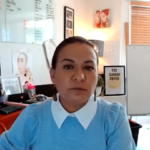Jury Deliberation Are Not Always Secret, says High Court

The cloak of secrecy that usually surrounds jury deliberations was recently lifted when the Western Australian Court of Appeal investigated the implications of a “mysterious note” written by a juror.
The note, addressed to the District Court judge, had been handed to the sheriff’s officer – the court official that helps the jury – on the evening after the delivery of a guilty verdict in the case of Mark Sharne Smith on January 17, 2012.
The anonymous juror wrote, “I have been physically coerced by a fellow juror to change my plea to be aligned with the majority vote.”
When the judge informed the prosecution and defence lawyers about the note, he also noted that one of the jurors looked very upset at the time the verdict was delivered.
The Case
Mr Smith had been found guilty on two counts of indecently dealing with a child under the age of 13 in Perth. But on learning of the note, he appealed the verdict on the ground that there had been a miscarriage of justice.
As Damien Carrick recently reported on Radio National’s The Law Report, the Court of Appeal finally handed down its ruling after two and a half years. On July 29 this year, the court found in the case of Smith vs The State of Western Australia that “there was no irregularity in the trial process and this appeal must be dismissed.”
Despite the appeal’s failure, the case opens up some interesting questions about whether jury deliberations should always remain hidden.
The Exclusionary Rule
Initially, Smith’s criminal defence lawyers requested that the Court of Appeal order that a statement be taken from the juror in question. But the court refused to make this order due to what’s known as the exclusionary rule, which rule prevents any enquiry into jury deliberations.
So Smith’s lawyers took the appeal to the High Court of Australia, and on February 12 2014, the High Court found that the exclusionary rule does not make evidence of jury deliberations inadmissible when it is preserving the secrecy of criminal conduct.
The High Court found that the suggestion of coercion raised by the note “cast a shadow of injustice over the verdict.”
The High Court also pointed out that Part IXA Section 56 (2) of the 1957 WA Juries Act does not prohibit a person from disclosing what transpires during jury deliberations to a court.
The High Court directed the Court of Appeal to reconsider Smith’s case. But by the time the enquiry was underway, it was very hard to get a clear picture as to what took place in the jury room back in 2012.
What Happened Behind Closed Doors?
It turned out that the man who wrote the note was the jury foreman.
He was difficult to track down and didn’t want to speak when the High Court Appeal had been decided. But once he was served with a subpoena, he explained that there had been an assault in the toilet across from the jury room. He was told if he didn’t return a guilty verdict, he’d be beaten up. This, he said, was the only reason he changed his verdict. He said he left the note behind because he wanted to expose how very wrong the jury process had gone.
Mr Smith’s appeal was ultimately dismissed because none of the other jurors or the sheriff’s officer backed up the foreman’s story.
The juror who was accused of the assault said he had nothing to do with the foreman except for having heated arguments in the jury room. The foreman – who had suffered abuse as a child – alleged that the juror who had threatened him had also accused him of being a paedophile. But none of the other jurors remembered such a remark. And no one recalled the two men going to the toilet together. However, they all agreed that the foreman had been sitting outside the jury room for long periods of time.
Inconsistent Versions of Events
Earlier this month, Professor Jeremy Gans from the Melbourne University School of Law highlighted inconsistencies in the jurors’ versions of the events.
He said that one juror recalled a group of jurors – including the foreman and the man he’d accused of threatening him – of going off to the toilets together. He said that when they returned to the jury room, the foreman’s mood had completely changed.
Professor Gans noted that deciding the appeal was difficult because no one seemed to have a clear memory of what actually took place, as it had been four years since the trial had been finalised.
People couldn’t remember what occurred during the deliberation process, including who went to the toilet with who, or even whether there had been a toilet. Given such problems, Gans agreed with the refusal of the appeal.
However, the High Court’s decision is important because it makes clear that jury deliberations are not always to be kept secret – indeed, the veil of secrecy may be lifted where there is a suggestion of criminal activity such as an attempt to pervert the course of justice. This is good news for those in favour of the independence of jurors, and just outcomes generally.








